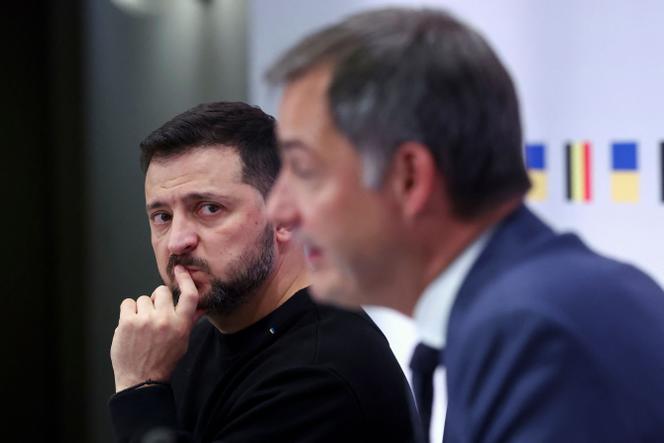


"As winter approaches, this is exactly the support we need," Ukrainian President Volodymyr Zelensky posted on Tuesday, October 10, on "X" (formerly Twitter), expressing his satisfaction at the announcement of new military aid from Germany. Ukraine's leading European supporter, Germany had pledged to deliver new anti-aircraft defense systems, including two IRIS-T ground-to-air batteries designed to intercept cruise missiles and Gepard armored vehicles, the first examples of which supplied to Kyiv last year have shown themselves to be highly effective in downing Russian drones.
The German announcement, which came ahead of the 16th meeting of Ukraine's allies in the so-called "Ramstein Group" (named after the American air base located in southwestern Germany), held in Brussels on Wednesday and to which Zelensky was invited at the last minute, is symptomatic of the evolution of the war. The ground counter-offensive launched by Kyiv's forces on June 4 has proven laborious, with very slow progress in the south and east of the country. Ukrainian authorities are expecting a second difficult wartime winter, during which Russia will once again step up its strikes on civilian targets and test the population's resolve.
Last year, Moscow began its winter campaign on October 10, when it launched a wave of 84 cruise missiles on Ukrainian cities, its first massive attack on the country's energy infrastructure. In the weeks that followed, Russian forces stepped up their strikes, using missiles fired from combat aircraft, ships and submarines operating in the Black Sea, as well as Iranian-designed suicide drones. The national power grid operator Ukrenergo reported that almost half of Ukraine's energy equipment – including thermal and hydroelectric power stations and electrical substations – were destroyed or damaged during the winter.
While much of the damaged infrastructure has since been repaired or diverted to other facilities, Ukrainians are expecting to over the coming months face more intense bombings than last winter. Having started its "special military operation" with few tactical drones, Russia has since strengthened its forces as the conflict progressed and now possesses much greater capabilities. According to Kyiv's tally, Moscow fired about 500 unmanned explosive devices – mainly Shahed-136s – into Ukraine in September 2023 alone, compared with around 1,000 over the whole of last winter.
Warned of the threat, Zelensky has been trying to convince his allies to create a "winter shield" over Ukraine, as reported to Agence France-Presse by a NATO diplomat. While Kyiv has received a large amount of anti-aircraft equipment since the start of the conflict – including a French-Italian SAMP/T anti-missile battery – more is needed to protect both the troops engaged in the fighting and the civilian infrastructure behind the front line. "Air defense is a significant part of the answer to the question of when this war will end, and whether it will end justly for Ukraine," Zelensky said in Brussels, explaining that it would not just protect the army but also civilians and the Ukrainian economy.
You have 40.97% of this article left to read. The rest is for subscribers only.
